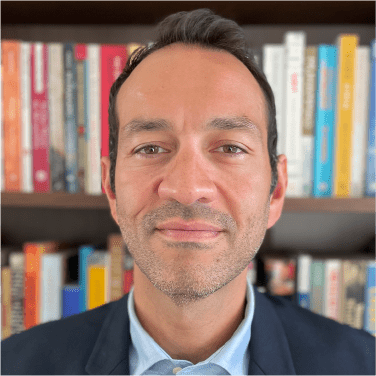Israel-Iran Escalating Confrontation:
What is at Stake in the region?
June 18, 2025
Summary
Tensions between Israel and Iran show no signs of de-escalation, with both states engaging in direct attacks that risk triggering a broader regional conflict. The ongoing escalation has heightened fears of spillover into neighboring countries, particularly those hosting Western military bases, while conflict-affected states such as Lebanon, Iraq, Yemen, and Syria face increased volatility and pressure from competing regional and international agendas. Despite multiple mediation initiative, these have yet to be accepted by either side. With growing international concern, the conflict raises urgent questions about the durability of regional security frameworks and the potential for further escalation.
In response to these developments, the Middle East Council on Global Affairs (ME Council) convened a panel of experts to provide diverse international and regional perspectives to assess the implications of the current crisis. The discussion explored several key questions: What are the security and political risks for Gulf countries and other neighboring states? How are non-state actors influencing the direction and intensity of the conflict? What shifts might we observe in Israel’s military strategy and domestic politics as the confrontation deepens? How is Iran’s internal and regional posture evolving in response? And crucially, what diplomatic pathways remain to de-escalate the crisis and prevent a wider war?
Mouin Rabbani, Nonresident senior fellow, Middle East Council on Global Affairs
- So far, it seems that Israeli society and its political class—including the political class— has rallied behind their government. Unlike the genocide in Gaza which witnessed some dissent from Israelis, the escalation against Iran is seen as an Israeli war, whereas the genocide has been perceived as Netanyahu’s war only.
- Trump is facing a different climate within Gulf states compared to his first term. Now, Gulf States are more willing to normalize relations with Tehran, such as Saudi Arabia through Chinese mediation. In his recent visit, Trump was also encouraged by his Gulf hosts to continue negotiations with Iran.
- Ultimately, an Israeli war on Iran is motivated by a desire to maintain Israel’s monopoly on nuclear weapons in the Middle East. With Israel’s new security doctrine, Israel is willing to use overwhelming force to eliminate any real or emerging threat
- The war in Iran has pushed Gaza out of the news, but this escalation could create more violence in Gaza, as well as for Palestinians in the West Bank and Palestinian citizens of Israel.
- Foreign aggression will likely not increase domestic dissent, especially in Israel where generations since the 1990s have been taught that Iran is the “head of the snake,” especially regarding Hamas and Hezbollah
Hamidreza Azizi, Nonresident senior fellow, Middle East Council on Global Affairs
- Israel’s main goal in this escalation is to create a regime change. So far on the domestic front, it’s complicated to say whether a war has shaken the regime, despite Israeli targeting of civilian infrastructure with the hope of socializing the regime. On Iranian social media however, there is a strong sentiment seeing that the war is not just on the Islamic Republic, but on the existence of Iran as a nation state.
- An attack on the Fordow facility would be extremely difficult and it would require more than one strike to reach the half-a-mile underground facility. If Iran actually decides to get a nuclear weapon, it would likely be at a lesser known facility.
- Iran is currently preparing for a scenario with US involvement. This would involve striking US air bases in the Middle East, the first base likely being the one in Iraq. Iran would also likely close off the straight of Hormuz, however there is pushback against this seeing it as more destructive to Iran in the long term.
- There is a potential scenario where Iran could go back to the negotiating table and agree to US terms, but there is a deep level of mistrust and deception. If it is going to be existential anyway, many in Iran believe it’s better to engage in war.
Barbara Slavin, Distinguished Fellow, Middle East & North Africa, Stimson Center
- Trump was initially very opposed to Israeli attacks on Iran, but his attitude shifted on this after seeing American reporting on the success of Israel’s attacks on Iranian nuclear sites.
- A perpetual war can just go on so long as the US keeps resupplying Israel. Furthermore, those in Iran are responding to the war in a patriotic way, but not necessarily as support of the regime.
- With the escalation unfolding now, countries in the GCC stand to lose a great deal if oil tankers are attacked. Militias in the MENA region could also go against US diplomatic facilities and other softer targets as well.
- With regards to US domestic response, the opposition is unable to impact foreign policy. However, with Democrats potentially taking back the House of Representatives in 2026, the house could utilize investigative powers and impeach Trump again.
- Iran is rightful to distrust any diplomatic process, but it would want to seek respite if possible. Iran could plausible say it could stop enrichment for a period of time following the damage to the Natanz facility. This could be portrayed as a pause to allow diplomacy for a few months or years.
The webinar concluded with a Q&A from the audience which discussed potential US involvement in this rising escalation, domestic stability in Iran, as well as the positions of Russia and China in this escalation. Barbara Slavin emphasized that further escalation could be prevented without US involvement on Israel’s side, telling Israel to stop sending missiles in about a week. Mouin Rabbani also emphasized that Israel will not be able to destroy Iran’s nuclear systems alone. Panelists emphasized the domestic impacts of this war on citizens in Iran, Israel, and the US and perceptions towards this escalation. They also strongly highlighted the potential for diplomacy as an end to this escalation.




